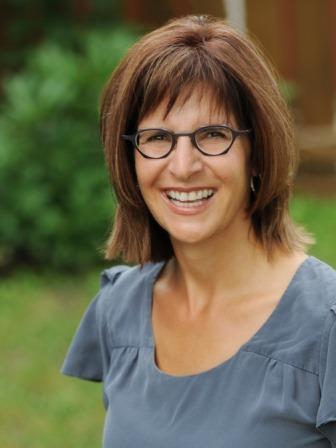BRANDON, Man. – While the arrival of Syrians in Manitoba is a major news topic today, significant Syrian migration to the province was once widely unnoticed, says a Brandon University (BU) professor.
Alison Marshall, a professor in the Department of Religion at BU, has extensively studied the ways religion and migration affect one another. She is preparing to publish a paper, along with her husband Brian Mayes, entitled The Living and the Dead, examining the diversity of Muslims in Manitoba and how their traditional burial practices are prevented by legislation.

“In Manitoba by 1914 there was a group of at least 50 Syrians in Manitoba,” says Marshall. “They lived on farms, primarily; many of them were merchants too. Many ate halal and were devout Muslims, so I’m fascinated by those kinds of untold histories.”
Marshall says that many of Manitoba’s Muslims at the time lived in Brandon and the surrounding area. While it is uncertain how that came to be, she theorizes that it was a natural extension of a strong, established Islamic community in Saskatchewan. The migration was soon curbed, Marshall says, as Syrians came to be considered part of the undesirable, prohibited Asiatic race. Institutionalized racism was meant to encourage European immigration, while keeping Asians and other groups out.
“Legislation increasingly tried to capture those groups and prevent them from coming in, either by charging them head tax or outright banning them as the Chinese immigration act did,” Marshall says, adding it was wasn’t until the legislation was repealed in the 1950s that the numbers began to grow again.
Marshall, who is on sabbatical from BU, is also working on a paper on Muslim food practices and is writing a book about Filipino religion and history in Canada.
“Many of Canada’s earliest migrants from the Philippines were young men who obtained work as domestic servants,” says Marshall, who has also published two books on Chinese-Canadian history. “To their employers, members of the dominant society of the Dominion of Canada, Filipinos epitomized the ‘good servant.’ The perception that Filipinos were ideally suited for service roles in Euro-Canadian private homes would remain in force for more than a century, persisting to the present day. It wasn’t until the late 1950s, when you have more Filipinos coming in, that you have a kind of communal spirit that allows communities to develop and thrive.”
While she has written much about Manitoba and Canada, Marshall’s interest in the subject matter is truly global. She is in the third year of a five-year term as co-chair of the American Academy of Religion’s (AAR) program unit on Religion and Migration. Among her duties are helping to compile papers and organize sessions for the AAR’s annual meeting, which is attended by more than 10,000 scholars from throughout the world.
Marshall says there are many common threads to the research from around the world as the way religion and migration intersect is influenced by the amount of freedom a group has, no matter where that may be.
“Allowing people to practice their religion, I believe it leads to healthy communities,” she says. “People haven’t always enjoyed religious freedom in Canada. Religious freedom leads to sustained settlement patterns, and I think we are going to see future public policy acknowledge that fact.”
Contact
- Brandon University
- communications@brandonu.ca
To receive any BU publication in an alternate format please contact Communications@BrandonU.ca
About BU
Success is built at Brandon University. Our growing, progressive campus welcomes a diverse and inclusive community that combines proud tradition with shared ambition. Through our excellence in teaching, research, and scholarship, we educate students to make a meaningful difference as engaged citizens and leaders. Join us at BrandonU.ca.